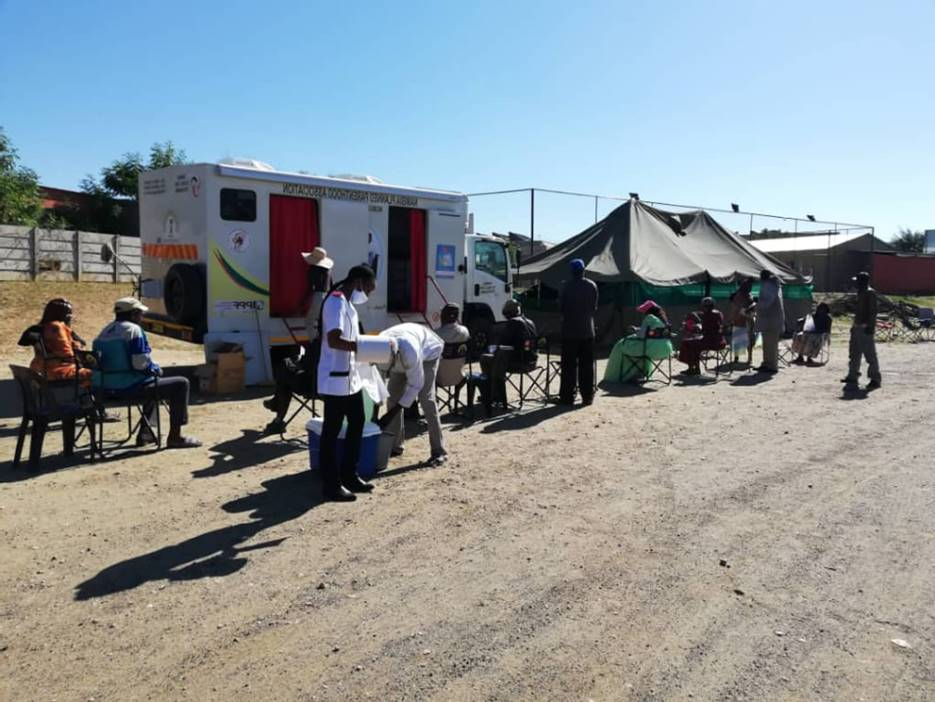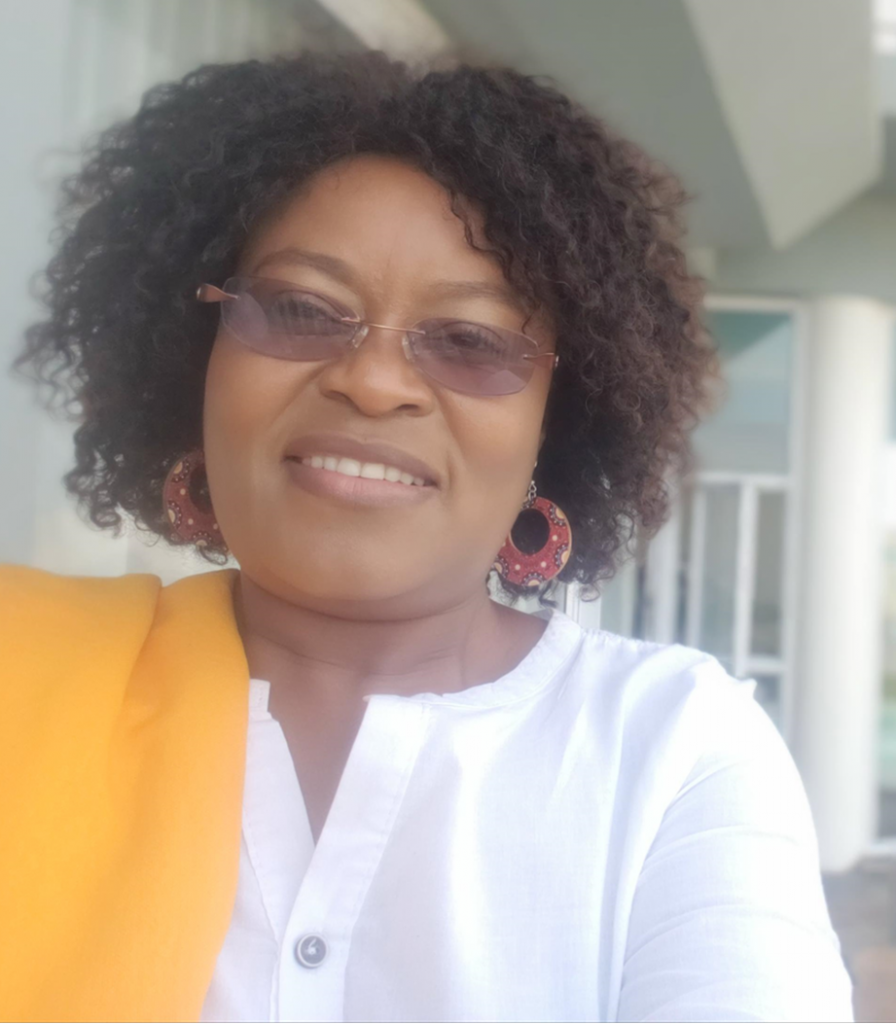Interview with Freida Ndapvudja Stefanus, ED of the Namibia Planned Parenthood Association (NAPPA) on Response to COVID-19
How has your country been affected by Coronavirus?
The first two COVID-19 positive cases in Namibia were reported on 13 March 2020 in the capital city of Windhoek. Thereafter, the President declared a state of emergency effective from 17 March 2020 with closure of all schools.
On 19 March 2020, the third positive case was reported and by 25 March the cases were seven. Subsequently the two regions namely Erongo and Khomas went into lockdown from 27 March 2020 until 17 April 2020 and by this time the country had 16 cases where all confirmed cases where from the three regions of Khomas, Erongo and Kharas.
Thereafter, the national lockdown was declared until 4 May 2020 under Stage I of COVID-19 response. By this time the total positive cases were at 16 with 8 recoveries, 8 active cases and zero deaths.
On 5 May the national lockdown Stage I was lifted and the country entered into Stage II of the national COVID-19 emergency response. During this stage, social distancing is still mandatory at 1.5 meters and face masks became mandatory for all people when using public transport, shopping malls and at workplaces. Gatherings of more than 10 people is prohibited, no conferences, big meetings and seminars are allowed until 1 June 2020. All schools remain closed and are planned to resume on 5th August 2020.
What services is your MA still able to provide during this time?
During Stage I of lockdown, only providers of essential services as per government gazette were allowed to operate; while non-essential service providers were working from homes. By 14 April, all NAPPA clinics where fully operational and providing ART, PrEP, PEP, ANC, FP, STI screening & treatment, HTS, GBV screening & counselling, pregnancy test, Condom provision, health education and counseling on all SRHR issues.
Have you had to adapt the way your MA delivers SRHR services? If yes, please describe how.
Yes. Due to closure of schools and the prohibition of large gatherings, NAPPA was unable to provide SRHR services to leaners at schools. In addition, dialogues, CSE sessions, condomize campaigns, pop up events, trainings and meetings can no longer take place because of lockdown restrictions.
To keep up with the regulations, instead of having 40 plus participants per dialogue, only eight participants are gathered per session. This applies for any trainings as well.
In terms of awareness creation, young people use videos to share their stories and educate others on SRH, GBV, etc. In addition, and in collaboration with RightByHer, UNFPA and the Ministry of Health and Social Services; NAPPA has developed IEC material to create awareness on how COVID-19 impacts SRHR and GBV most especially among young women and girls.
NAPPA is also upgrading the internet at all the clinics and is using this to attract young people to access their schoolwork while at the same time creating an opportunity for young people to access SRHR services. Health care providers are kept continually updated and reached for meetings and trainings via virtual means whenever the need arise.

Have you had to shut down any clinics or suspend some activities?
Yes, some activities were suspended such as trainings for health care workers and CSE trainings for teachers. The alternative of training them in smaller groups is very costly as compared to where one could gather more people at one session. However, this arrangement was agreed upon with some donors as project lifespans are limited.
Stakeholder meetings can also not take place as was initially planned and budgeted for. In addition, not all stakeholders had access to internet for virtual meetings during Stage I of lockdown when most people where working from homes. As the country has moved into stage II of lockdown, the feasibility of having virtual meetings is still being explored because not all partners have resumed work at their offices. The mobile clinic activities for Ohangwena and Walvis Bay were suspended due to lack of staff but in Khomas region, the mobile clinic is being used by the Ministry of Health for COVID-19 screening.
Is your MA part of any COVID-19 response team?
Yes. NAPPA is a committee member of the Ministry of Health and Social Services Mobile Services and Clinical Staff for the Case Management of COVD-19. NAPPA has availed a driver and the mobile clinic to the Ministry of Health and Social Services to be used for COVID-19 screening in Katutura Teachers’ Resource Center in Windhoek. In addition, the MA is part of the UNFPA Central Emergency Response Fund (CERF) implementing partner responding to GBV, draught and COVID-19.
How are you working with partners during this time to ensure SRHR services are delivered?
All NAPPA clinics are part of the health district teams in those regions where they are present. The Ministry of Health is referring most young people to NAPPA clinics for Family Planning, STI screening and treatment, ANC, etc. NAPPA is working with UNFPA GBV SRH Officers in Ohangwena, Omusati, Kavango East, Zambezi and Kunene regions to coordinate activities responding to SRH and GBV in emergency situations. All GBV cases are referred to Regain Trust, and NGO providing psychosocial support to GBV survivors and victims.
Have your MA staff participated in any trainings on COVID-19?
Yes, five staff members of NAPPA were trained as trainers of trainees by the Ministry of Health and WHO on COVID-19 infection prevention control. These staff are now busy training staff at the clinics on the same.
What concerns do you have about women and girls during this time?
Due to COVID-19 lockdown, women and girls have limited access to GBV services while Intimate Partner Violence (IPV) is likely to increase. Therefore, NAPPA in collaboration with UNFPA has recruited volunteers to provide house to house information in the communities to ensure that women are sensitized on their rights and are knowledgeable about where they can access GBV services. NAPPA clinics are referring GBV clients to Regain Trust and the Ministries of Gender and Health, who have trained social workers to deal with these issues.
The supply of Family Planning commodities is severely affected as most contraceptives are out of stock. Therefore, NAPPA is working closely with UNFPA to ensure that commodities are availed at all clinics for uninterrupted services provision.
What is your MA doing to ensure that pregnant women who need services during this time are still able to access them?
Ante-natal care (ANC) services are provided daily and women with complications are referred to the Ministry of Health facilities. To ensure that young girls do not miss out on Tetanus Toxoid (TT) immunization, NAPPA in collaboration with the Ministry of Health has introduced this vaccine for girls aged 10 and 15 years; with special focus of screening the TT vaccination status among pregnant girls. To encourage ANC attendance, pregnant mothers receive priority at our clinics.
How are your MA volunteers involved in the response to COVID-19?
NAPPA volunteers are providing COVID-19 information in the five regions of Kavango East, Zambezi, Omusati, Kunene and Ohangwena. These volunteers are trained on demand creation and awareness raising of GBV as well. They also distribute IEC material on COVID-19, GBV and other SHR issues such as teenage pregnancy, PrEP, ART, etc.
